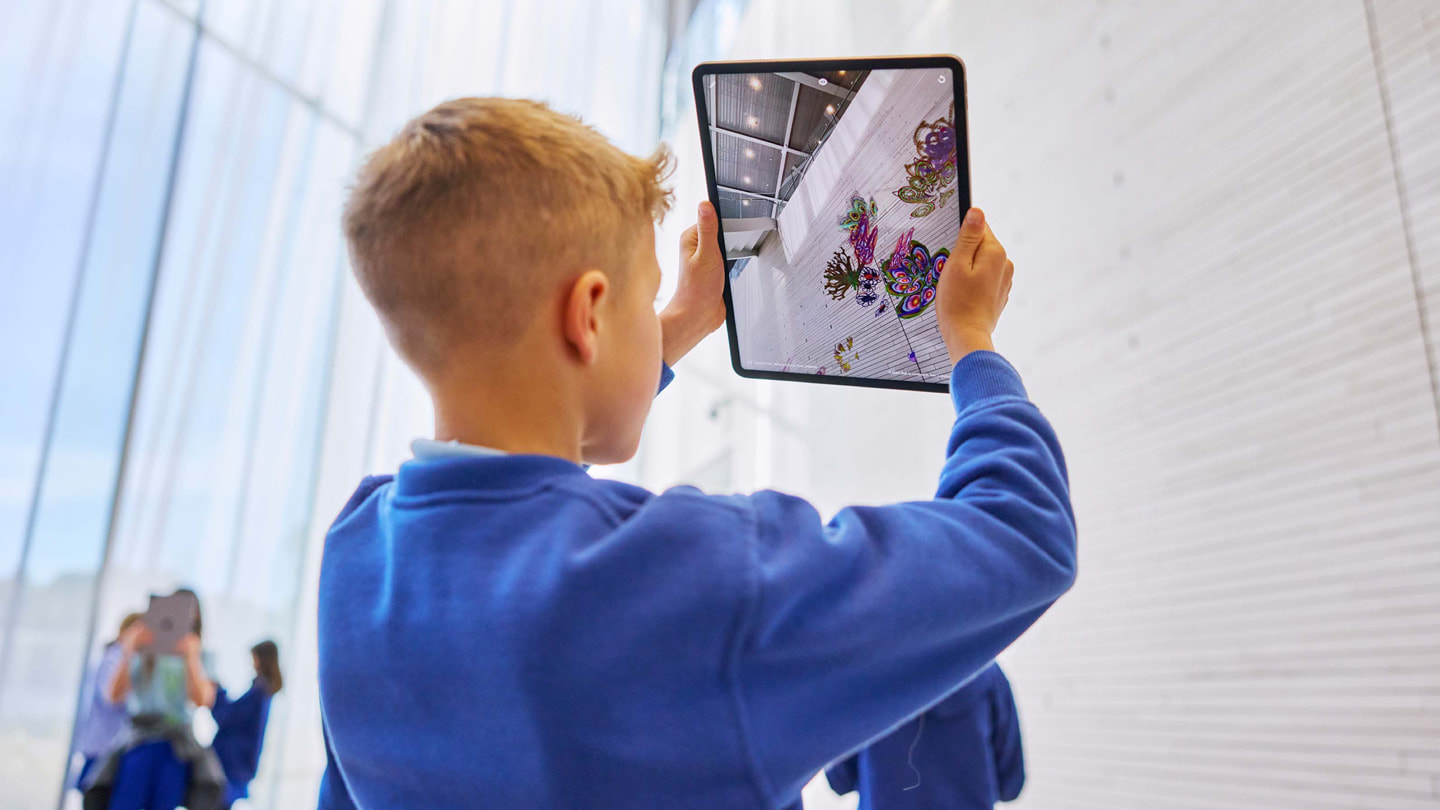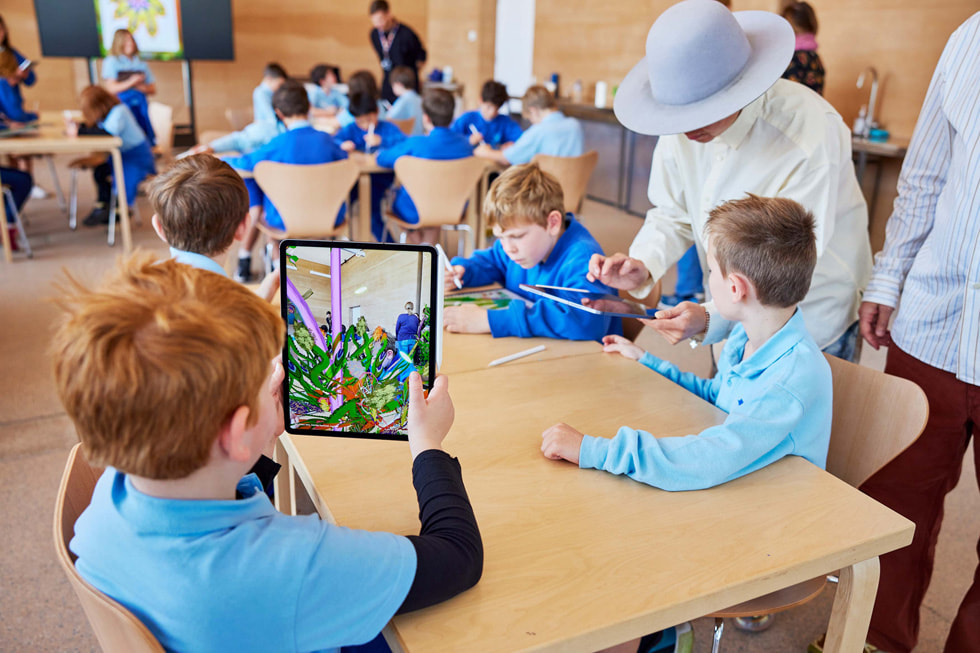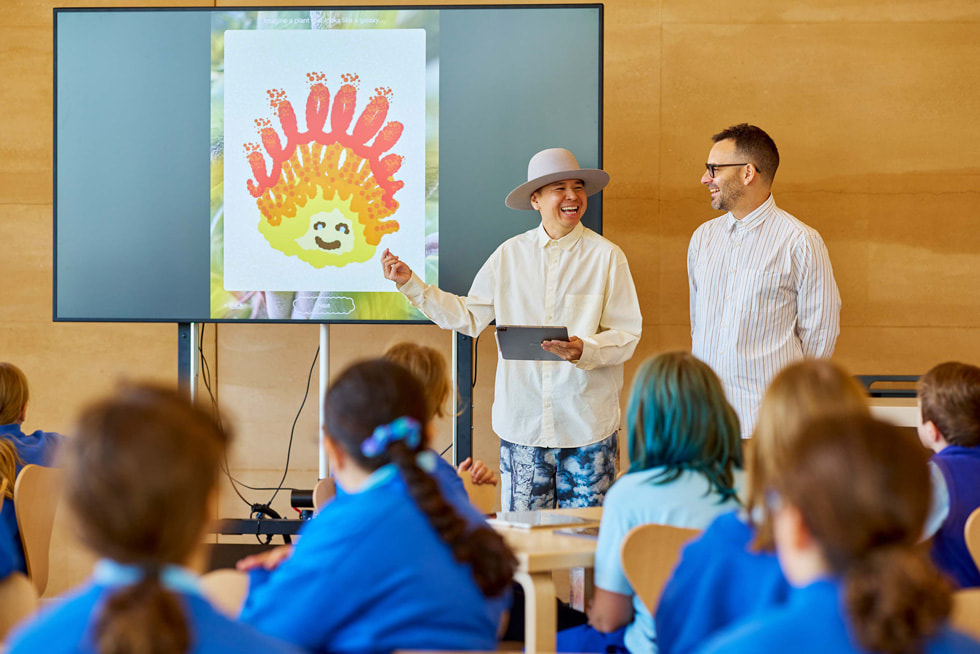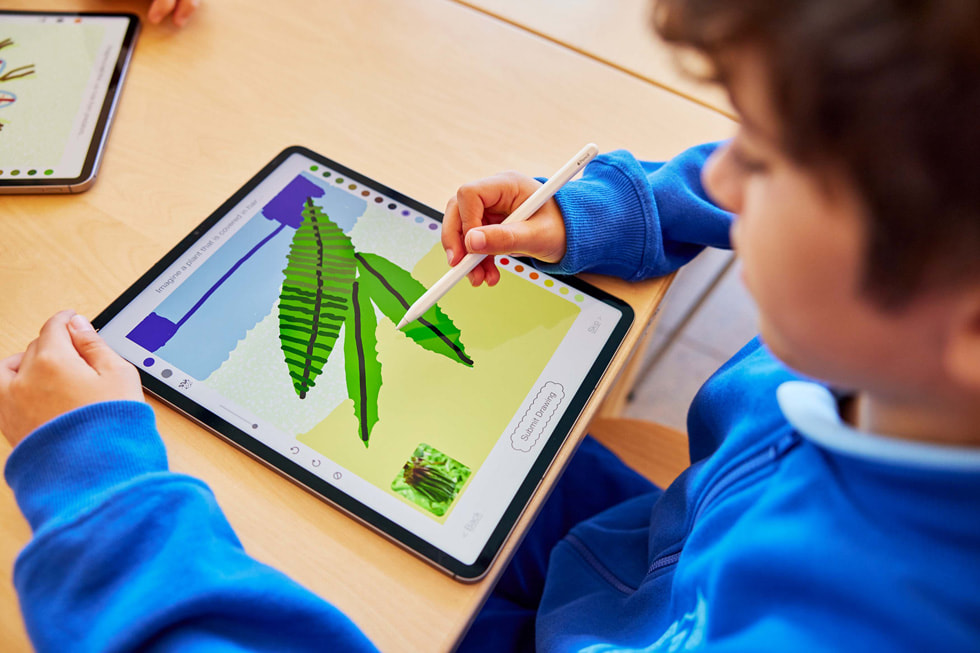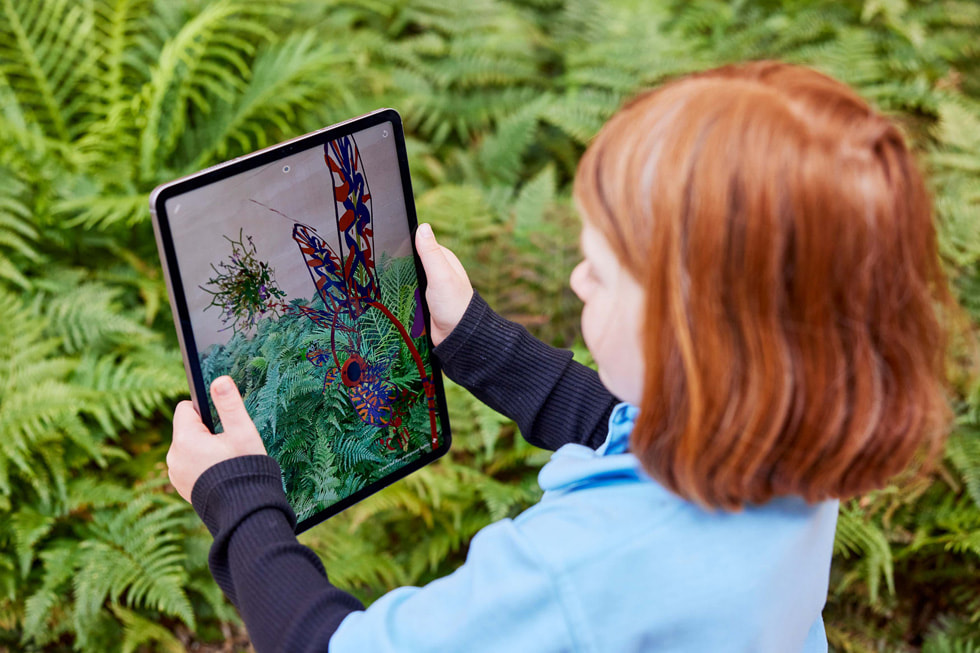FEATURE
July 6, 2023
New immersive AR experience brings student creativity to life
Australian artists create a new immersive educational experience, inspiring global cocreation and connection to the environment, powered by iPad Pro and Apple Pencil
Inspired by a curiosity for the natural world, Deep Field is a new immersive art experience and app created by celebrated Australian artists and creative technologists Tin Nguyen and Edward Cutting of Tin&Ed, using iPad Pro and Apple Pencil. Initially available at the Art Gallery of New South Wales in Sydney and the Getty Center in Los Angeles, the interactive augmented reality (AR) and sonic experience enables students and families around the world to cocreate and connect in real time through their shared reimagining of the environment.
Harnessing the power and portability of iPad Pro, combined with the precision of Apple Pencil to foster creativity, Deep Field participants are invited to take inspiration from works of art and the environment to draw their own flora and fauna, experimenting with vibrant colour, shapes, and textures. After dreaming up fantastical plant parts, participants sketch their designs with Apple Pencil in the Deep Field iPad app, which are then added to a global database filled with flora drawn by participants across the world in real time, cocreating a new ecosystem where the invisible worlds of plants are revealed through the magic of AR. Using the LiDAR Scanner on iPad Pro, participants watch their artworks bloom into spectacular 3D plant structures trailing across the floors, walls, and ceilings around them, creating a newly imagined, immersive natural world.
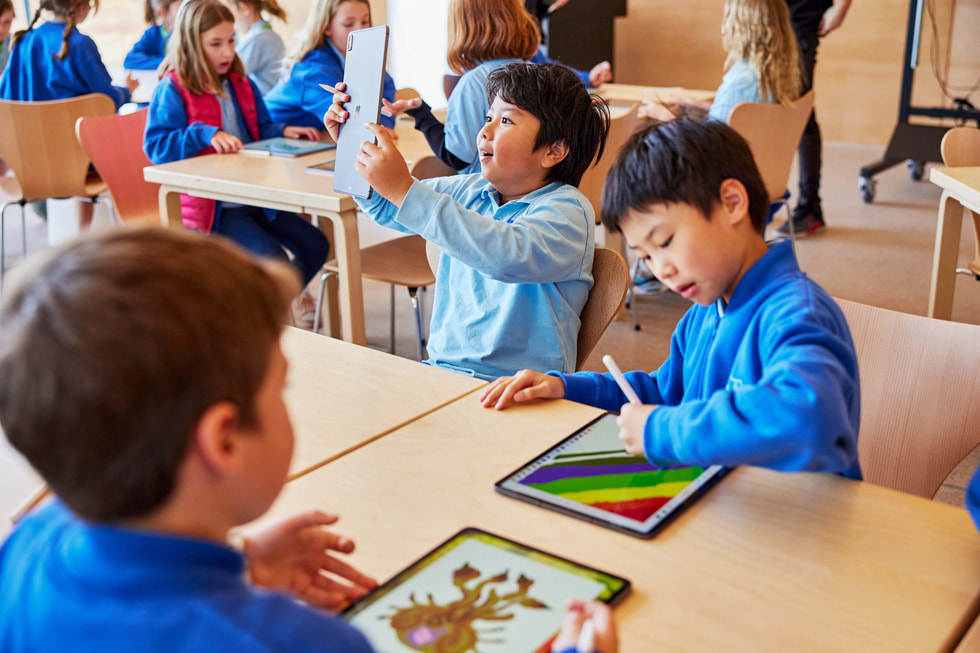
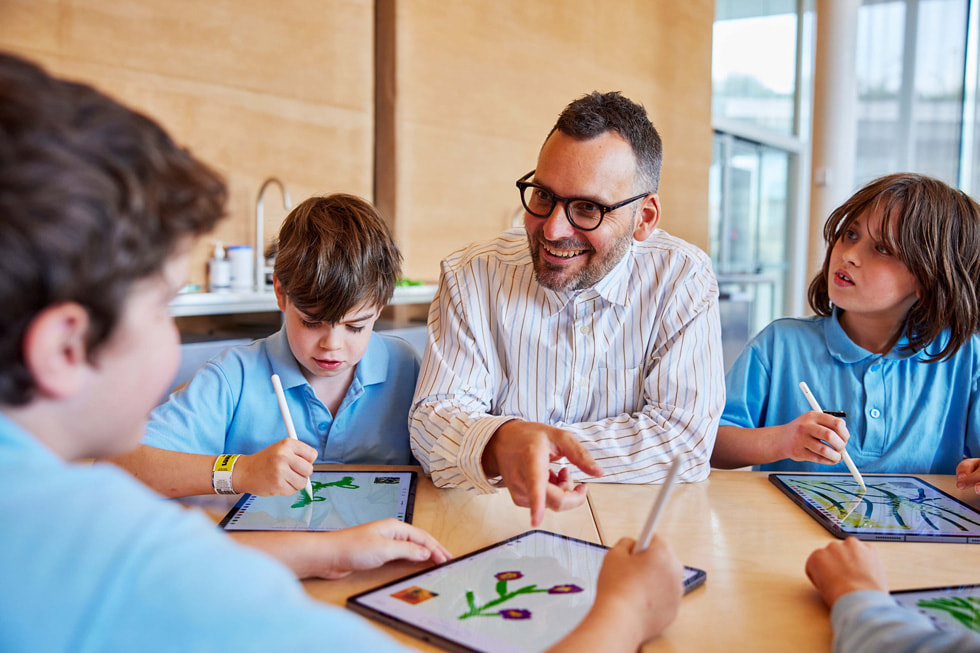
The guided experience encourages audiences to consider new perspectives and think about the planet differently, from plants that have lived for a thousand years, to new and imagined species. Taking the experience to another level, the app’s UV mode also enables students and families to view their newly created world in a different dimension, as they experience the world as a pollinator.
Multidisciplinary artists Tin&Ed create vibrant, playful, and interactive experiences across the world that explore and push the interconnected boundaries between art, design, and technology, and the physical and digital worlds. More than an immersive simulation, Deep Field utilises accessible technology that empowers people to bring creativity to life, while also shining a spotlight on the need to protect the planet.
To bring the Deep Field experience to life at this scale, Tin&Ed fused their background in art and design and passion for creative technologies to work skillfully across multiple devices. The power of MacBook Pro, Mac Studio with M1 Ultra, and Studio Display, combined with 3D platform Unity, enabled the development of complex three-dimensional worlds that were then optimised for real time. The Deep Field app was designed using Apple’s ARKit framework, allowing for the integration of the depth-sensing features in iPad Pro with the M2 chip, to produce spectacular 3D plant structures in AR. The state-of-the-art LiDAR Scanner in iPad Pro offers cutting-edge depth-sensing capabilities to measure light distance, and uses pixel depth information of a scene to deliver faster and more realistic AR experiences.
“For us, AR is a powerful artistic medium for storytelling because it is immersive and multisensory,” says Tin Nguyen, artist at Tin&Ed. “The power of the M2 chip on iPad Pro has made it possible to create a work that enables children from across the globe to imagine new worlds together in real time.”
“Deep Field encourages children to look, listen, and think more deeply about the natural world and their place within it,” says Edward Cutting, artist at Tin&Ed. “We hope they come away from the experience feeling a sense of wonder and curiosity and a deeper connection to nature and each other.”
To enhance the multisensory experience, Deep Field features a multichannel soundscape of forgotten and extinct species by celebrated audio naturalist Martyn Stewart, bringing a new appreciation to the beauty of the noisy environment of the natural world. Stewart, together with his foundation, The Listening Planet, has made it his life’s work to catalog the sounds of the planet and bring nature’s voice to the world in the hopes of safeguarding its future.
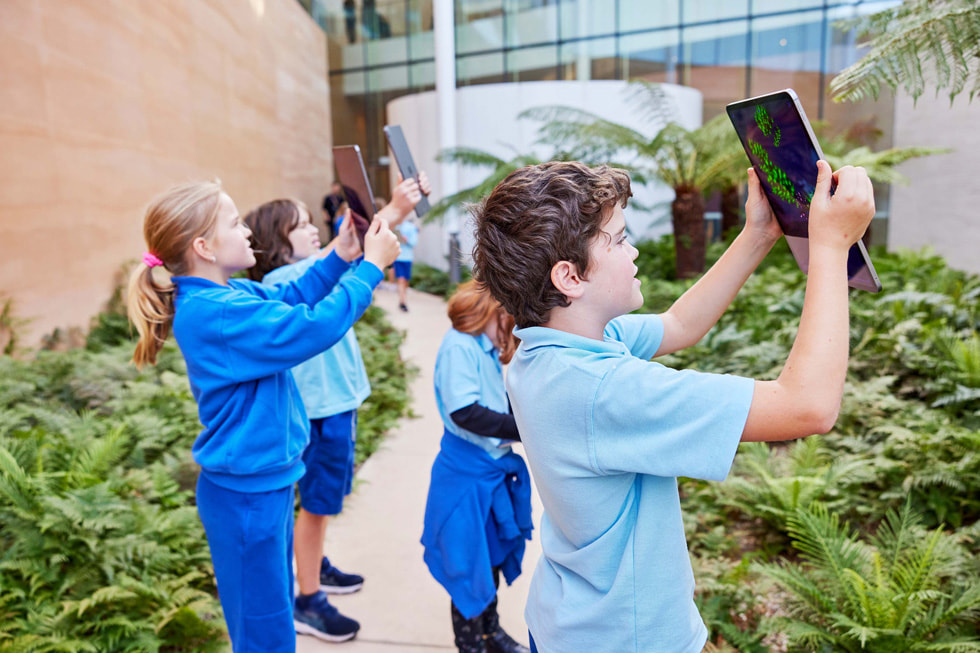
Deep Field is now available for students and families at the Art Gallery of New South Wales in Sydney, and will be available for visitors at the Getty Center in Los Angeles from Saturday, July 8, until Sunday, July 16.
“Deep Field is a new opportunity for our youngest visitors to experience the intersection of art and technology,” says Dr. Michael Brand, the Art Gallery of New South Wales’s director. “Thanks to the vision of Tin&Ed, with the experience starting in our Yiribana Gallery, each participant will be invited to look closely at nature through the lens of the world’s oldest continuous cultures, as depicted in the Aboriginal and Torres Strait Islander artworks. Children will also be encouraged to connect with their surroundings by observing and responding to the magnificent natural landscape, which is seamlessly integrated into our new art museum campus in Sydney on Gadigal Country.”
“This is the Getty’s second collaboration with Tin&Ed, following the iOS app they created for our William Blake exhibition,” says Timothy Potts, Maria Hummer-Tuttle and Robert Tuttle director of the J. Paul Getty Museum. “Deep Field allows visitors to take inspiration from works of art in the Getty’s collection, including our own Central Garden (a living work of art), and collaborate with people on the other side of the world to create an ever-changing interactive work of art in augmented reality. In addition to bridging traditional art with new technology, it serves as a gentle reminder that we share this one earth with others and need to work as a team to care for it.”
Following availability in Sydney and Los Angeles, the Deep Field experience will embark on a world tour, arriving in Europe in October, and then on to Asia in November, including a stop at ArtScience Museum in Singapore.
Share article
Media
-
Text of this article
-
Images in this article
